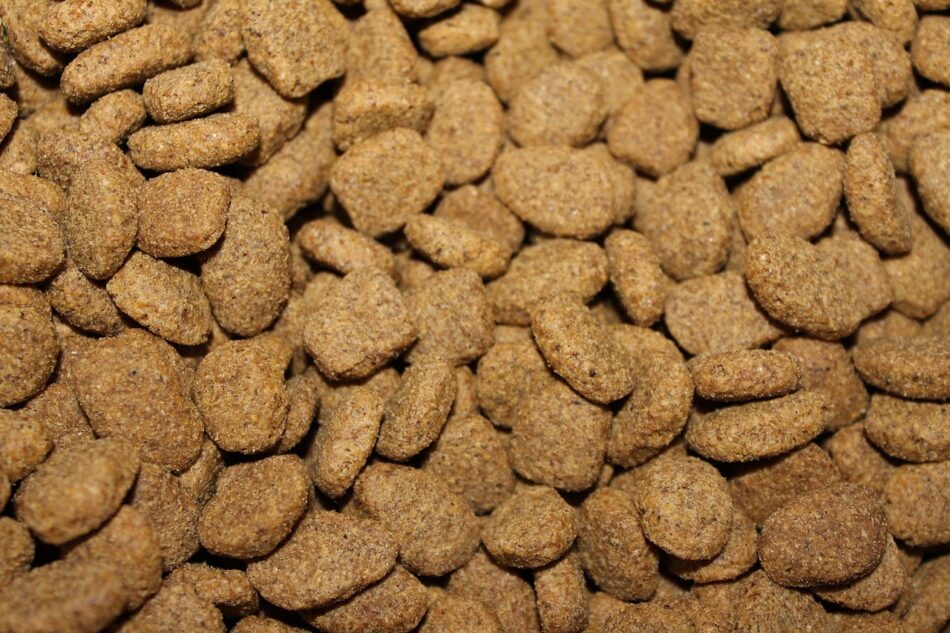Making homemade cat food is a great way to provide your furry friend with nutritious and personalized meals. As a cat owner, your top priority is to ensure that your pet stays healthy, well-fed and happy. By preparing homemade food, you can have complete control over what goes into their diet and ensure that they are getting all the nutrients they need. What’s more, making homemade cat food is a great way to show your love and care for your cat.
Commercial pet food often contains low-quality ingredients and additives that may not be good for your cat’s overall health. On the other hand, making homemade cat food is a great way to avoid these ingredients and ensure your cat’s well-being. With personalized recipes, you can incorporate their favorite flavors and textures, and create a meal that your cat will surely enjoy.
Not only is homemade cat food good for your cat’s health, but it can also be cost-effective and reduce the risk of allergies. By using fresh and high-quality ingredients, you can prepare a meal that is free of preservatives, processed ingredients, and by-products that can cause allergic reactions.
With a little planning and research, you can create delicious and nutritious homemade cat food that will keep your furry friend healthy and satisfied. However, it is essential to consult with your veterinarian before changing your cat’s diet. They can provide you with guidance on how to create a balanced and nutrient-rich meal plan for your cat.
The Benefits of Homemade Cat Food
Making homemade cat food is not only a way to show your love for your feline friend, but it also has many benefits. One of the main advantages of making your cat’s food at home is that you have full control over what goes into their diet. You can choose high-quality ingredients and eliminate any chemicals, preservatives, or additives that are often found in commercial cat food.
Another benefit is the ability to ensure a balanced nutrition for your cat. You can create recipes that include all the essential nutrients your cat needs, such as protein, carbohydrates, fats, vitamins, and minerals. By doing so, you can prevent nutritional deficiencies or imbalances that can lead to health problems.
Feeding homemade cat food can also reduce the risk of allergies in your cat. Commercial cat food is often made from low-quality ingredients and fillers that can cause allergic reactions. By making your cat’s food at home, you can avoid these allergens and provide your cat with a healthy and safe diet.
Lastly, homemade cat food can improve your cat’s overall health. By providing a nutritious and balanced diet, you can boost their immune system, promote healthy digestion, and help maintain a healthy weight.
In conclusion, making homemade cat food has many benefits that can improve your cat’s health and well-being. It allows you to control their diet, ensure balanced nutrition, reduce the risk of allergies, and promote overall health. However, it’s important to consult with your veterinarian before making any changes to your cat’s diet.
The Basic Ingredients for Homemade Cat Food
Making homemade cat food is a great option to ensure your cat gets the proper nutrients they need to stay healthy. When creating your own cat food, it’s important to include high-quality protein sources as the foundation of their diet. This can include lean meats like chicken, turkey, or beef, as well as fish, eggs, and dairy products like cottage cheese or yogurt. Make sure to avoid giving your cat raw fish or fish with high levels of mercury.
In addition to protein, carbohydrates are also important for your cat’s diet, but not too much. Good sources of carbohydrates include brown rice, sweet potato, pumpkin, or green peas. Fats also have an important role in your cat’s diet, providing energy and helping to absorb essential vitamins and minerals. Good sources of fats include animal fats, such as chicken fat or fish oil, and plant-based fats, such as flaxseed oil.
Finally, it’s important to ensure that your cat is receiving essential vitamins and minerals, which can be found in ingredients like liver, egg yolks, or fruits and vegetables. By including a balance of all these essential nutrients, you can ensure your homemade cat food will provide your feline friend with all the nutrients they need to stay strong and healthy.
Protein Sources
Protein is essential to maintain your cat’s overall health. However, it’s important to choose the right protein sources for homemade cat food. Good sources of protein include lean meats, such as chicken, turkey, and beef. Fish is also an excellent protein source, but it’s important to avoid giving your cat raw fish or fish with high levels of mercury.
Eggs are another good protein source, and they can be cooked lightly before adding them to your cat’s food. Dairy products, such as cottage cheese or yogurt, can also be used as a protein source, but it’s important to choose dairy products that are low in fat and sugar. Avoid giving your cat too much dairy as it can cause digestive problems.
When selecting protein sources for your homemade cat food, you should ensure that they are high-quality and easy to digest. Always remember to cook the meat thoroughly and remove any bones before adding it to your cat’s food. Your cat’s protein needs may vary depending on their age, weight, and activity level. Consult with your veterinarian to determine the right amount of protein to include in your cat’s diet.
Fish as a Protein Source
If you’re planning to include fish in your homemade cat food recipe, it’s important to be selective in choosing the right type of fish. While fish is a great protein source for cats, not all types of fish are safe for them to eat. Some fish contain high levels of mercury, which can be harmful to your cat’s health if consumed in excess.
When preparing fish for your cat, avoid feeding them raw fish. Raw fish can contain harmful bacteria and parasites that can cause food poisoning in cats. Make sure the fish is thoroughly cooked, and remove any bones before serving to prevent choking hazards. Also, avoid giving your cat fish that has been prepared with seasonings or additives as they can contain ingredients that are harmful to cats.
When choosing fish for your cat, opt for low-mercury options such as salmon, sardines, or herring. These types of fish are also rich in omega-3 fatty acids, which help support your cat’s skin, coat, and immune system. As always, consult with your veterinarian before making any changes to your cat’s diet to ensure they receive a balanced and nutritious meal.
Meat as a Protein Source
Meat is a crucial source of protein for cats, and it should be included in all homemade cat food recipes. When choosing meat as a protein source for your cat, make sure to choose lean cuts of chicken, turkey, or beef. It’s important to remove the skin and bones before feeding to avoid digestive problems or choking hazards.
When cooking meat for your cat, avoid using any seasoning or spices as they can be harmful to cats. Instead, boil or steam the meat until it’s fully cooked and then chop it into small pieces or grind it to make it easier for your cat to digest. You can also mix it with other ingredients like brown rice or vegetables to create a balanced and nutritious meal for your feline friend.
Carbohydrates
Carbohydrates provide energy for your cat’s body and are a necessary part of their diet. However, it is important not to give your cat too many carbohydrates as they are obligate carnivores and need a higher amount of protein than carbohydrates. Good sources of carbohydrates for homemade cat food include brown rice, sweet potato, pumpkin, or green peas.
Brown rice is a great source of complex carbohydrates, fiber, and essential fatty acids. Sweet potatoes are rich in vitamins and minerals, and they also contain antioxidants. Pumpkin is good for digestion, and its high fiber content aids in weight loss. Green peas are also an excellent choice, as they contain protein, fiber, and vitamins like A, C, and K.
When adding carbohydrates to your cat’s diet, it is best to cook them thoroughly and serve them in moderation. Too many carbohydrates can lead to obesity, diabetes, and other health problems. Discussing your cat’s diet with your veterinarian may also help you determine the appropriate amount of carbohydrates to include in their meals.
Fats
Fats are an essential component of homemade cat food as they provide energy and aid in the absorption of vitamins and minerals. However, it is important to choose the right types of fats to ensure your cat’s health. Good sources of animal fats include chicken fat and fish oil, while plant-based fats such as flaxseed oil are also beneficial for your cat’s diet.
It is important to note that too much fat can lead to obesity and other health issues, so it is recommended to use fats in moderation and consult with a veterinarian to determine the appropriate amount for your cat’s specific needs.
It is also important to choose high-quality sources of fats, as not all fats are created equal. Avoid using low-quality or artificially processed fats, and opt for natural sources whenever possible. By incorporating the right types of fats into your homemade cat food recipes, you can ensure a balanced and nutritious diet for your feline friend.
Vitamins and Minerals
Vitamins and minerals are vital for your cat’s overall health and well-being. Adding the right ingredients to their diet can ensure they receive essential nutrients. One great source of vitamins and minerals is liver, which contains high levels of vitamins A and B12, as well as iron and zinc.
Egg yolks are another excellent source of vitamins and minerals, such as protein, vitamin D, and choline. Including fruits and vegetables in your cat’s diet can also provide them with additional vitamins and minerals. Some good options include carrots, green beans, and blueberries.
It’s important to note that while vitamins and minerals are crucial for your cat’s health, too much of certain nutrients can be harmful. It’s best to consult with your veterinarian to ensure that your cat is receiving the correct amount of each nutrient based on their individual needs.
Homemade Cat Food Recipes
Now that you understand the benefits of homemade cat food and the basic ingredients needed, it’s time to explore some recipes. Homemade cat food recipes can be simple or complex depending on your cat’s preferences and dietary needs. Here are three recipes to get you started:
- Chicken and Rice Recipe: This recipe is easy to make and includes high-quality protein from chicken and carbohydrates from brown rice. Simply boil the chicken until cooked, shred it into small pieces, and mix it with cooked brown rice. Optional ingredients include sweet potato, peas, and low-sodium chicken broth.
- Fish Stew Recipe: This recipe is perfect for cats who love fish. Use a combination of safe fish, such as salmon or tuna, and vegetables like carrots, green beans, and sweet potato. Cook the fish and vegetables in a low-sodium vegetable or chicken broth, and serve it to your cat once cooled.
- Beef and Vegetable Recipe: This recipe is best for cats who love beef. Start by browning ground beef and draining the fat. Add diced vegetables such as carrots and green beans, and cook them until tender. Serve with brown rice or quinoa for added nutrients.
Remember to consult with your veterinarian before making any changes to your cat’s diet. They can provide advice on the best ingredients and portion sizes for your cat’s specific needs.

